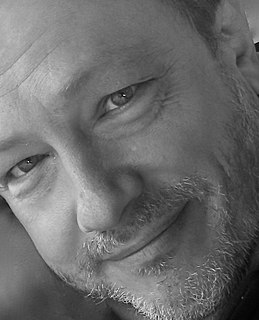A Quote by Kenny Smith
"Cynicism," like "heresy" and "heterodoxy" and "atheism" and "agnosticism" and "paganism" and "heathenism," is above all else a way for organized orthodoxy's caste of official censors to encyst and segregate and thus neutralize all contrarian forms of seeing and thinking, all (necessarily implicitly) prohibited and repressed ways of exercising disruptive and iconoclastic intuition and intellection (for to analyze and explain these things too openly is to give them publicity and potential cogency when the point is to asphyxiate them).
Related Quotes
My forms are not abstractions of things in the real world. They're also not symbols. I would say that my job is to invent these forms and to put them together in a way that keeps your interest, to give the forms a quirky identity so you can engage with them, so you realize there's an inner intelligence or logic. If you stop asking what they mean, or what they remind you of, and just look at them for 29 seconds, you find that they want to explain themselves and show you how much every tiniest detail is related to the whole.
My philosophy is that once you get people compelled enough to sit down and play the game, the whole way you make the game successful is by giving them enough unique ways to do things. First, let them deal with pulling levers and things like that for a while. Then after they've mastered that, you give them something else to do, like getting through doorways by blasting them down with a cannon Next, you give them a monster-finding quest, followed by logic problems to figure out. You pace it that way. Assorted activities and the diversity of activities are what makes a game rich in my mind.
My forms are not abstractions of things in the real world. They're also not symbols. I would say that my job is to invent these forms and to put them together in a way that keeps your interest, to give the forms a quirky identity so you can engage with them, so you realize there's an inner intelligence or logic.
That is my way of doing things, and I wouldn't necessarily recommend this to anybody else; if you need to do technical exercises, you do them. The whole point of practicing is to get to know yourself, to know your weaknesses and to zero in on them and target them. It's not really about employing anybody else's formulas, because you really have to find what is best for you and what you need.
The reason why it is so difficult for existing firms to capitalize on disruptive innovations is that their processes and their business model that make them good at the existing business actually make them bad at competing for the disruption. Companies in fact are specifically organized to under-invest in disruptive innovations! This is one reason why we often suggest that companies set up separate teams or groups to commercialize disruptive innovations. When disruptive innovations have to fight with other innovations for resources, they tend to lose out.
But why do some people support [the heretics]?" "Because it serves their purposes, which concern the faith rarely, and more often the conquest of power." "Is that why the church of Rome accuses all its adversaries of heresy?" "That is why, and that is also why it recognizes as orthodoxy any heresy it can bring back under its own control or must accept because the heresy has become too strong.





































